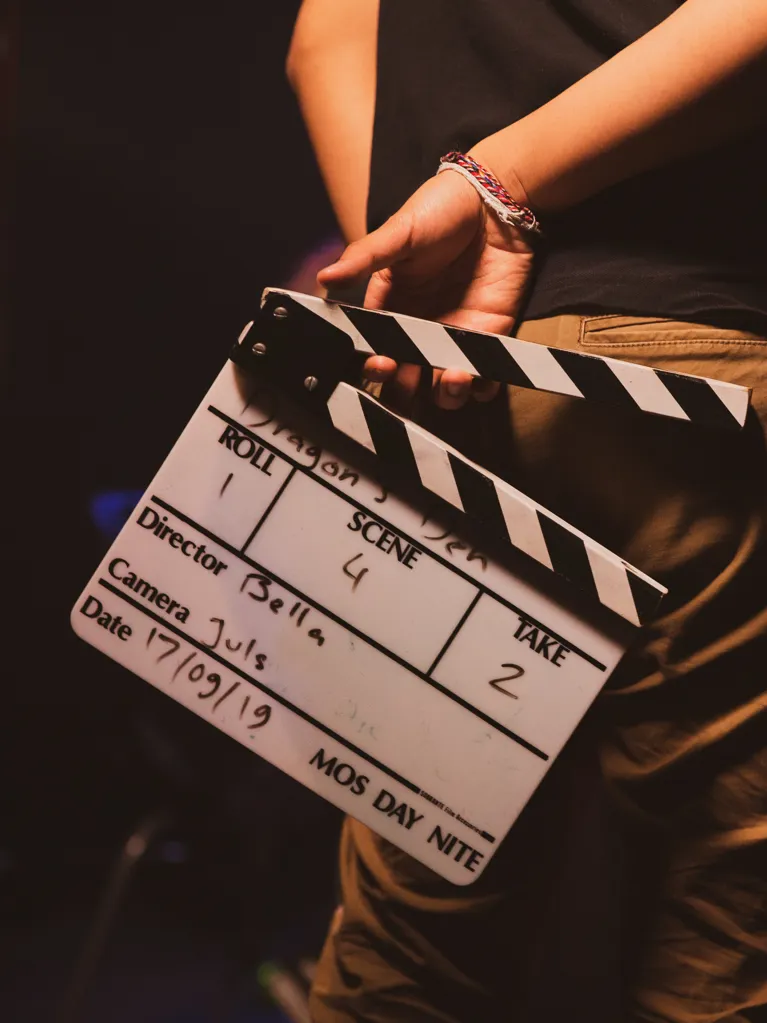In an industry as creative as the Film and Television, it's obvious there would be a large variety of roles that you could go into, but we want you to understand just how varied they can get!
We’ve put together some well-known roles that you could end up working in after studying our Film and TV Production course, and some that are not so obvious.
Producer
The producer initiates, coordinates, supervises and controls matters such as raising funding, hiring key personnel and arranging distributors. The producer is involved throughout all phases of the film making process from beginning to end. In Television, the producer manages the whole project and production of the series or programmes.
Director
The Director is the top-dog on set, also known as the captain of the ship. They are responsible for overseeing everything that goes on while on set. They are in charge of translating the screenplay to film, being aware of the in-depth technical knowledge and managing all talent and staff on set. It can often be very stressful having to work to the producer's demands and deal with any issues that may arise.
Director of Photography
Working with the director, camera crew and lighting department, the DP is responsible for creating the visual identity or look of the film. They are the chief of the camera crew and will guide the direction of the staff through the technical necessities.
Production Manager
The Production Manager manages the physical aspects of the production rather than the creative, including organising the personnel, technology, budget and scheduling, to ensure the filming runs smoothly from the beginning to the end. The production manager will typically be part of the process from the very early stages to the very end.
Want to study Film & Television at JMC?
First Assistant Director
The 1st AD is a professional position in charge of managing the set. They will schedule the shoot and manage any activity actually on set. Similar to the production manager but solely focused on the shoot days, the aim of the 1st AD is to ensure the film comes in on schedule and overseeing the day-to-day management.
Post Production Supervisor
There are many different roles within the post-production section of film making, and the post-production supervisor oversees it all. Organising staff and scheduling as well as the production and delivery of the final footage.
Editor
An editor is a person who assesses and assembles the various shots into a coherent film with the help of a director.
Lighting Designer
The LD aka. Gaffer works with the set designers, Director of Photography and directors to create the ‘look’ of the film through lighting. Their advanced technical lighting skills are used to creatively change the mood of the scene and design the studio lighting.
Digital Content Producer
Often hired by corporations rather than the film industry, videographers work in the video medium and are often responsible for capturing, lighting and editing the film together, often for commissioned work.
Sound Recordist
A Sound Recordist is head of the sound department on set and is responsible for the sound on location and in a studio to enable the highest quality ‘real’ sound to be recorded at the time of filming.
Location Manager
The Location scouts work under the managers and are responsible for searching for and finding locations suitable for filming. They often have to find a variety of different locations all for the same scene to send to the director for approval. Location Managers are then responsible for managing the logistics of making the location work in regards to the film crew and equipment.
Grip Assistant
Grips are trained, rigging technicians. They are responsible for moving and adjusting major set pieces or the camera with the help of their assistants.
Production Designer
The production designer is responsible for the 'look' of the film including props, makeup, costumes and the overall design of the film.
Digital Imaging Technician
The digital imaging technician is responsible for the coordination of the internal workings of the digital camera including image quality control, on-set colour correction, as well as all data and file distribution.






